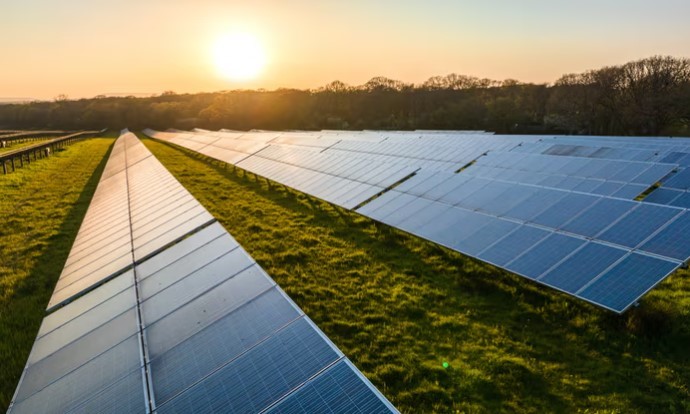
Ed Miliband Sets New Solar Panel Rules and Approves Major Solar Farms
Under the leadership of Keir Starmer, the Labour government has announced an ambitious "rooftop revolution" to install solar panels on millions of homes across the UK. This initiative aims to reduce domestic energy bills and combat the climate crisis.
Energy Secretary Ed Miliband made a bold move this weekend by approving three large-scale solar farms in eastern England, previously blocked by Tory ministers. The sites—Gate Burton in Lincolnshire, Sunnica's energy farm on the Suffolk-Cambridgeshire border, and Mallard Pass on the Lincolnshire-Rutland border—are expected to contribute two-thirds of the solar energy installed in the UK last year.
Ahead of Wednesday's king's speech, which will introduce legislation for the new publicly owned energy company GB Energy, ministers are collaborating with the building industry to facilitate the purchase of new homes with solar panels and the installation of panels on existing homes. They are considering implementing solar-related standards for new properties starting next year.
Current regulations, which do not require formal planning permission but impose restrictions on placement, particularly in conservation areas and on listed buildings, may also be revised.
Miliband, committed to tripling the UK's solar power by 2030, doubling onshore wind, and quadrupling offshore wind, declared: "I want to unleash a UK solar rooftop revolution. We will encourage builders and homeowners in every possible way to deliver this win-win technology to millions of UK addresses, enabling people to generate their own electricity, lower their bills, and help fight climate change."
Officials emphasized the government's readiness to challenge opposition as part of the climate crisis battle. Miliband also recently lifted the Tories' de facto ban on new onshore wind farms.
UK energy experts welcomed Miliband's rapid actions on solar power, noting that it addresses a significant imbalance in renewable energy distribution. Currently, most renewable energy is generated in the north but must be transmitted to the more demanding south, often resulting in congestion and reliance on expensive gas generators. Oxford University's Sugandha Srivastav highlighted that solar power in the south would alleviate this issue and keep power costs low.
The new solar farms—Gate Burton, Sunnica, and Mallard Pass—will significantly boost the UK's solar capacity by approximately 1.35 gigawatts, nearly 10% of the current capacity. Hamish Beath from Imperial College London called this development "very welcome."
However, local opposition has emerged. Tory MP Alicia Kearns expressed strong disapproval of the Mallard Pass project. The government defended its decision, citing the provision of clean energy for around 92,000 homes over 60 years.
Experts also stress the need for rapid improvements to the National Grid to handle increased solar power production. Srivastav emphasized the urgency of addressing electricity transmission and distribution to meet rising demand as society electrifies.
Speaking before the king's speech, Starmer outlined his priorities to stimulate economic growth through a green energy revolution, aiming to create the wealth needed to improve public services.
The upcoming legislation will include strict new spending rules, the establishment of a national register for children not attending school, and measures to ensure all primary schools have breakfast clubs. It will also limit the number of mandatory branded uniform items to three, easing financial burdens on families.
Prime Minister Starmer emphasized: "There is no time to waste. We are hitting the ground running by bringing forward the laws we need to rebuild our country for the long term. From energy to planning to unbreakable fiscal rules, my government is serious about delivering the stability that will turbocharge growth and create wealth across the UK."
The legislative package will also address housing construction, public transport improvements, and measures to enable local leaders to have more control through devolution.